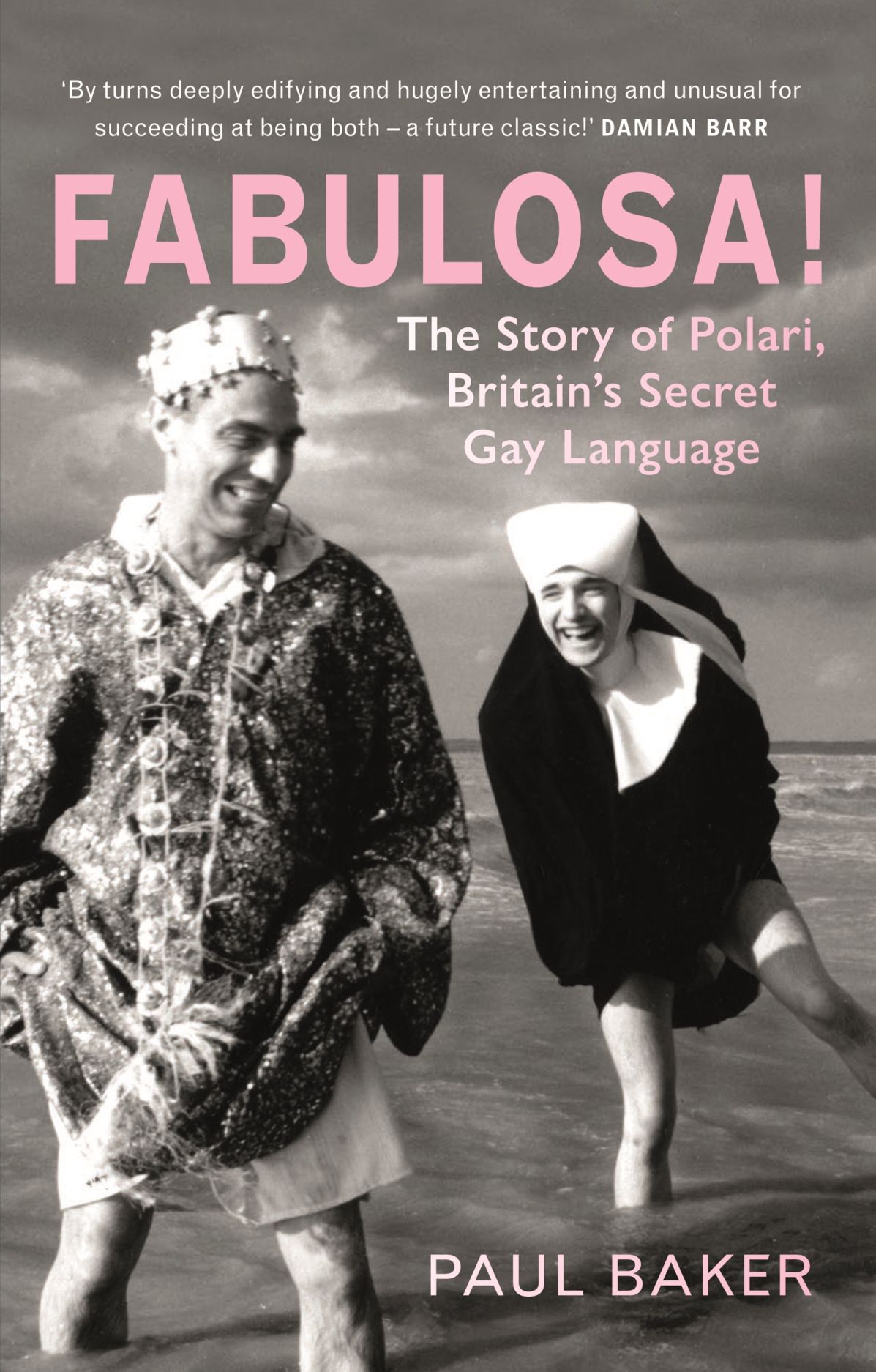Fabulosa! The story of Polari, Britain’s secret gay language
Polari is a language that was used chiefly by gay men in the first half of the twentieth century. At a time when being gay could result in criminal prosecution – or worse – Polari offered its speakers a degree of public camouflage, a way of expressing humour, and a means of identification and of establishing a community. Its roots are colourful and varied – from Cant to Lingua Franca to prostitutes’ slang – and in the mid-1960s it was thrust into the limelight by the characters Julian and Sandy, voiced by Hugh Paddick and Kenneth Williams, on the BBC radio show Round the Horne (‘Oh Mr Horne, how bona to vada your dolly old eke!’).
Paul Baker recounts the story of Polari with skill, erudition and tenderness. He traces its historical origins and describes its linguistic nuts and bolts, explores the ways and the environments in which it was spoken, explains the reasons for its decline, and tells of its unlikely re-emergence in the twenty-first century.
With a cast of drag queens and sailors, Dilly boys and macho clones, Fabulosa! is an essential document of recent history and a fascinating and fantastically readable account of this funny, filthy and ingenious language.
zum Buch im ULB-Katalog
zum Buch auf der Verlags-Website
Minor genres in postcolonial literature
Moving beyond the postcolonial literature field’s traditional focus on the novel, this book shines a light on the „minor“ genres in which postcolonial issues are also explored.
The contributors examine the intersection of generic issues with postcolonial realities in regions such as South Africa, Nigeria, New Zealand, Indonesia, Australia, the United Kingdon, and the Caribbean. These „minor“ genres include crime fiction, letter writing, radio plays, poetry, the novel in verse and short stories, as well as blogs and essays. The volume closes with Robert Antoni’s discussion of his use of the vernacular and digital resources in As Flies to Whatless Boys (2013), and suggests that „major“ genres might yield new webs of meaning when digital media are mobilized with a view to creating new forms of hybridity and multiplicity that push genre boundaries.
In focusing on underrepresented and understudied genres, this book pays justice to the multiplicity of the field of postcolonial studies and gives voice to certain literary traditions within which the novel occupies a less central position.
zum Buch im ULB-Katalog
zum Buch auf der Verlags-Website
Weitere Titel können Sie in unseren Neuerwerbungslisten für die Anglistik entdecken!


